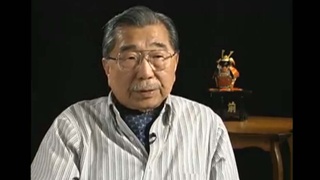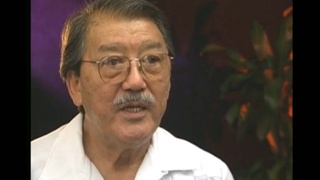Interviews
Erasing the Bitterness
But as to whether it accomplished what we were looking for, I think it did in the sense -- as we said in talking about this -- how it brought out the feelings. How it finally...people were able to, I think, put closure to the whole thing. I mean, it keeps going on. I mean, like these things, it keeps coming up, but I think it puts closure to the emotional part of any bitterness that at least the government apologized. At least there was admission by vast numbers of people that it was wrong. That you know, there wasn't disloyalty. I mean, being incarcerated, the implication that there was something that we had to be incarcerated for. You wiped that out.
And so I think, I think that yes, it did. There might be, there might have been some other things that could have been better maybe. But I think essentially our goals will be met and this is ongoing, too. I mean, we're still talking about it so you know, there is no point at which we say until we're gone I guess.
And maybe it'll take historians many more years to... that's, that's a question I have: will this be forgotten, or will this remain in history? Will it be said that in 1942 there were 120,000 people sent to concentration camps? But along with it, will it be said that through the efforts of this small minority, the government did apologize. I think that's an important part of history.
Date: September 26, 1997
Location: Washington, US
Interviewer: Becky Fukuda, Tracy Lai
Contributed by: Denshō: The Japanese American Legacy Project.
Explore More Videos

A Dutiful Son
(1918-2012) Fought the constitutionality of Executive Order 9066.

Bypassing the Constitution
(1918-2012) Fought the constitutionality of Executive Order 9066.




Figuring out a dollar amount for redress
Judge, only Japanese American to serve on CWRIC.

On hearing of CWRIC selection from Senator Inouye
Judge, only Japanese American to serve on CWRIC.

Rationale for rejecting redress payment
Judge, only Japanese American to serve on CWRIC.



Appointing John Tateishi as National JACL Redress Chair
(1917 - 2004) Political activist

Inouye’s strategy for educating the American public
(1917 - 2004) Political activist

Recalling President Carter’s signing of the Commission bill
(1917 - 2004) Political activist

Poignant story from the CWRIC hearing in San Francisco
(1917 - 2004) Political activist

John Tateishi plays a role in changing people's minds
(1917 - 2004) Political activist
